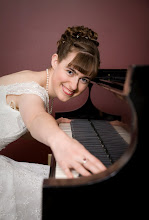This left the majority with two options. The first was, obviously, to teach their own children music at home. Although this is a worthy occupation, it did nothing for their own musical dreams.
Their second option may surprise you. Many women chose to join convents as a means to pursue their musical careers. Convents were unique in that they offered women opportunities to perform regularly and even compose and produce their own works.
For more information on the musical nuns of the 18th century take a look at the works of Dr. Janet Page, especially her articles in the Oxford journal.
What would you have done if you'd lived in the 1700's? Would you have become a nun?

No comments:
Post a Comment